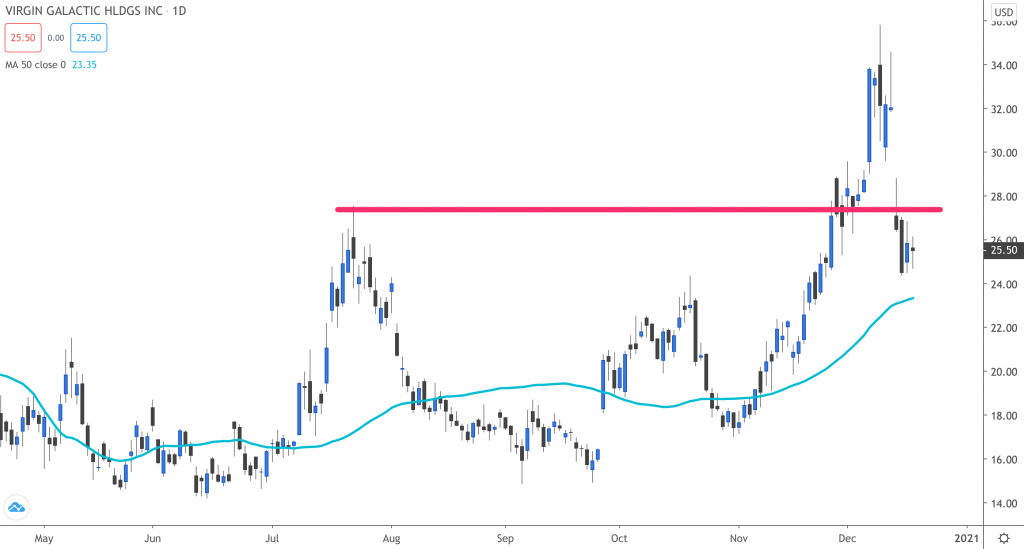This stock has been propelled out of this world this year, but a slip up last weekend pushed the stock lower this week. But despite the drop, one technical analyst says the stock is still on track to keep heading higher.
Space is the final frontier, and the path to getting there is certainly rocky.
Virgin Galactic (NYSE: SPCE) shares have dropped nearly 21% this week—including a 17% drop on Monday alone, marking the third worst day of trading since the stock debuted in October 2019—after the space tourism company cut short last weekend’s spaceflight test mid-launch due to an engine ignition issue.
“The flight did not reach space as we had been planning,” Virgin Galactic CEO Michael Colglazier said in a statement. “After being released from its mothership, the spaceship’s onboard computer that monitors the rocket motor lost connection. As designed, this triggered a fail-safe scenario that intentionally halted ignition of the rocket motor. Following this occurrence, our pilots flew back to Spaceport America and landed gracefully as usual.”
While the drop this week likely made some Virgin Galactic investors sweat, Oppenheimer head of technical analysis Ari Wald argues that the stock still looks poised for more upside ahead.
“What’s most notable is that this 17% drawdown really hasn’t damaged the trend of the stock’s performance that it’s developed through much of the year,” Wald said. “It’s still above all of its moving averages indicating that this weakness is a function of that strength. Just, this is how it trades with that type of volatility.”

Wald pointed to the stock’s breakout above $25 in July as resistance that has become support, but the new resistance has formed at around $33. The stock closed on Thursday at $25.50 and is up more than 120% year-to-date.
But BK Asset Management managing director of FX strategy Boris Schlossberg argues that Virgin Galactic needs to expand its business model beyond space travel and prove that it can successfully execute for the stock to continue to move higher.
“The true business thesis for Virgin Galactic is not $250,000 vanity flights into space,” Schlossberg said. “It’s the promise of suborbital travel from any major airport across the world in about one hour making travel from Asia to North America very, very fast. The problem is the company has yet to make a viable case that they have the technology to achieve this task.”
However, until that happens, Virgin Galactic remains a “very, very speculative play,” Schlossberg concluded.
Virgin Galactic said it will provide information “in the near future” on when it expects to be able to launch another test flight. The company has a roster of 600 ticket holders who have paid as much as $250,000 each for a trip to space.